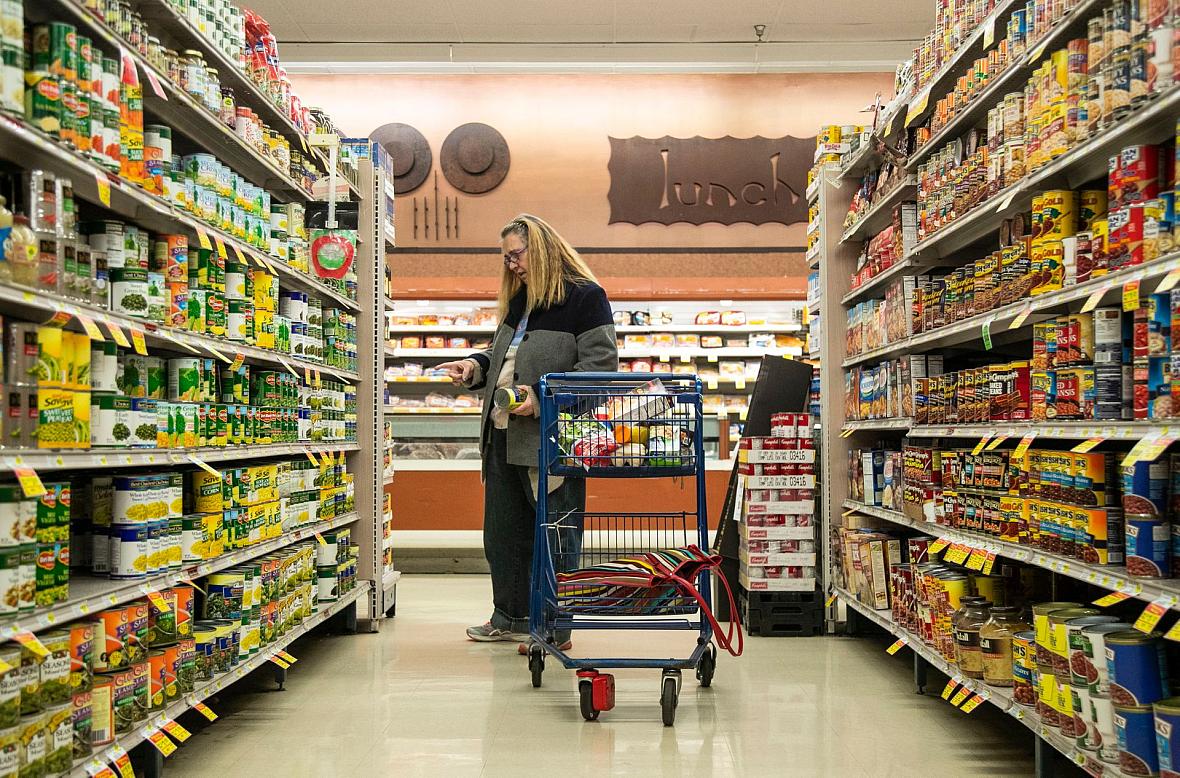In 30 seconds: What you should know about food deserts in Louisville
The Courier Journal's continued coverage of food insecurity in Louisville is supported by the University of Southern California Center for Health Journalism's 2018 National Fellowship.
Other stories in this series include:
Tell us: How do you get food where you live in Louisville?
Dare to Care relocation may bring job training, grocery to the West End
Shelby Park's Save-A-Lot closed with little warning to neighbors
Sorry, we're closed: How everyone is hurt when grocery stores shut down
In 30 seconds: What you should know about food deserts in Louisville
Tuition or food? How college kids use food pantries to help food insecurity
Louisville has a fresh food problem. Can we fix it?
'A real crisis in Louisville': Readers respond to food desert series
How a low-income Louisville neighborhood became a fresh food oasis
How can cities end food deserts? Here are 4 solutions that worked
Louisville families shouldn't be struggling to find fresh food
No grocery store in your neighborhood? Join forces to create one
People can't get to a grocery store easily. So these volunteers are driving them
Would you shop at a mobile grocery store? Kroger is betting on it
Where You Live Determines How Much Your Eggs Cost at Kroger
How some residents get their food in Louisville's food deserts
Louisville's vacant grocery stores find new tenants. But they won't sell food
How these Louisville companies are helping employees buy affordable fresh produce
Can indoor farming fix food deserts? These Louisville students think so
Kentucky's hunger initiative earns national attention. But thousands still need food
Downtown Louisville is growing rapidly. So why doesn't it have a grocery store?
Is crime driving grocery stores out of Louisville's low-income communities?
Louisville kids are still at risk for lead poisoning. Here's how healthy eating can help
When will downtown Louisville get a grocery store? Here's what we found
Everything you need to know about Kroger's mobile grocery store in Louisville
Kroger's mobile market brings fresh food to Louisville neighborhoods without access
This nonprofit leader is giving west Louisville the black-owned grocery it 'deserves'

Michele Dutcher takes a bus to and from the Valumarket at the Mid City Mall on Bardstown Road a few times a week for groceries. She can't carry a lot so frequent trips are necessary from her Old Louisville apartment.
(Photo Credit: Matt Stone/Courier Journal)
Across Louisville, more than 44,000 people live within food deserts, meaning they can't easily get healthy, affordable food.
Inadequate food access is linked to higher rates of illnesses and lowered life expectancy in predominantly low-income neighborhoods. And the issue is costing taxpayers millions of dollars in emergency health care.
In June 2018, Courier Journal reporter Bailey Loosemore received a six-month fellowship from the University of Southern California's Center for Health Journalism to learn how food insecurity affects Louisville and how the complex problem could be solved.
Here are the main takeaways from her reporting, which was published Thursday.
► Local food access has worsened as grocery stores close at an astonishing rate. Since 2016, more than a dozen stores have shuttered citywide, often forcing lower income residents to spend more time and money to get food.
► The closures have inordinately affected Louisville's most vulnerable residents, including adults with disabilities, children living in poverty and seniors on fixed incomes. But they've also created difficulties for citizens who work full-time jobs and who own cars but who still struggle to get groceries.
► Inadequate access to healthy food can lead neighborhoods to develop higher rates of illnesses such as diabetes, heart disease and even asthma, costing communities millions of dollars in extra health care expenses. In 2017 alone, Kentucky spent more than $9.5 billion on Medicaid coverage for low-income and disabled residents.
► Across Louisville, dozens of groups are working to improve food access. But critics say the movement has been stifled by elected officials who are not open to supporting innovative solutions.
► Louisville Mayor Greg Fischer said the issue is a priority for the city, and three departments are tackling food access from different angles. In its 2018-2019 budget, the city awarded nearly $400,000 to six food-related organizations and another $1.1 million to 15 ministries that provide emergency assistance, including food.
► At the nonprofit level, Dare to Care Food Bank is working on a mobile market that could travel between neighborhoods. New Roots has expanded its Fresh Stop Markets, which sell shares of local produce on a sliding pay scale. And the Food Literacy Project has taken over an urban farm near Iroquois, where it leads educational programs for youth and adults. A group of volunteers is working to open a community-owned grocery store, and even a club of middle schoolers is researching aquaponics as a sustainable farming system for food deserts.
[This story was originally published by Courier Journal.]

